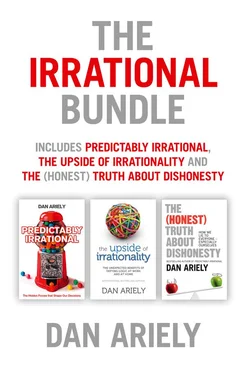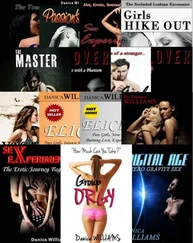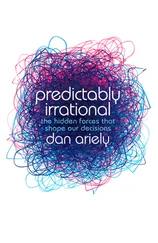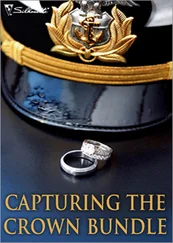So what about our football fans and the game-winning pass? Although both friends were watching the same game, they were doing so through markedly different lenses. One saw the pass as in bounds. The other saw it as out. In sports, such arguments are not particularly damaging—in fact, they can be fun. The problem is that these same biased processes can influence how we experience other aspects of our world. These biased processes are in fact a major source of escalation in almost every conflict, whether Israeli-Palestinian, American-Iraqi, Serbian-Croatian, or Indian-Pakistani.
In all these conflicts, individuals from both sides can read similar history books and even have the same facts taught to them, yet it is very unusual to find individuals who would agree about who started the conflict, who is to blame, who should make the next concession, etc. In such matters, our investment in our beliefs is much stronger than any affiliation to sport teams, and so we hold on to these beliefs tenaciously. Thus the likelihood of agreement about “the facts” becomes smaller and smaller as personal investment in the problem grows. This is clearly disturbing. We like to think that sitting at the same table together will help us hammer out our differences and that concessions will soon follow. But history has shown us that this is an unlikely outcome; and now we know the reason for this catastrophic failure.
But there’s reason for hope. In our experiments, tasting beer without knowing about the vinegar, or learning about the vinegar after the beer was tasted, allowed the true flavor to come out. The same approach should be used to settle arguments: The perspective of each side is presented without the affiliation—the facts are revealed, but not which party took which actions. This type of “blind” condition might help us better recognize the truth.
When stripping away our preconceptions and our previous knowledge is not possible, perhaps we can at least acknowledge that we are all biased. If we acknowledge that we are trapped within our perspective, which partially blinds us to the truth, we may be able to accept the idea that conflicts generally require a neutral third party—who has not been tainted with our expectations—to set down the rules and regulations. Of course, accepting the word of a third party is not easy and not always possible; but when it is possible, it can yield substantial benefits. And for that reason alone, we must continue to try.
Reflections on Expectations: Music and Food
Imagine walking into a truck stop off a deserted stretch of Interstate 95 at nine o’clock in the evening. You’ve been driving for six hours. You are tired and still have a long drive ahead of you. You need a bite to eat and want to be out of the car for a bit, so you walk into what appears to be a restaurant of sorts. It has the usual cracked-vinyl-covered booths and fluorescent lighting. The coffee-stained tabletops leave you a bit wary. Still, you think, “Fine, no one can screw up a hamburger that badly.” You reach for the menu, conveniently stashed behind an empty napkin dispenser, only to discover this is no ordinary greasy spoon. Instead of hamburgers and chicken sandwiches, you’re astonished to see that the menu offers foie gras au torchon, truffle pâté with frisée and fennel marmalade, gougères with duck confit, quail à la crapaudine, and so on.
Items like this would be no surprise in even a small Manhattan restaurant, of course. And it is possible that the chef got tired of Manhattan, moved to the middle of nowhere, and now cooks for whoever happens through. So is there a key difference between ordering gougères with duck confit in Manhattan and ordering it at an isolated truck stop on I-95? If you encountered such French delicacies at the truck stop, would you be brave enough to try them? Suppose the prices were not listed on the menu. What would you be willing to pay for an appetizer or an entrée? And if you ate it, would you enjoy it as much as you might if you were eating the same food in Manhattan?
On the basis of what we learned from Chapter 10, the answers are simple. Ambience and expectations do add a great deal to our enjoyment. You would expect less in such an environment, and as a consequence you would enjoy the experience at the truck stop less, even if you had the identical foie gras au torchon in both places. Likewise, if you knew that pâté is largely made of run-of-the-mill goose liver and butter * Конец ознакомительного фрагмента. Текст предоставлен ООО «ЛитРес». Прочитайте эту книгу целиком, купив полную легальную версию на ЛитРес. Безопасно оплатить книгу можно банковской картой Visa, MasterCard, Maestro, со счета мобильного телефона, с платежного терминала, в салоне МТС или Связной, через PayPal, WebMoney, Яндекс.Деньги, QIWI Кошелек, бонусными картами или другим удобным Вам способом.
rather than super special ingredients, you would enjoy it much less.
A FEW YEARS ago the folks at the Washington Post were curious about the same basic topic and decided to run an experiment. 11Instead of food, they used music. The experimental question was this: can outstanding art shine through a filter of mundane and dingy expectation?
Journalist Gene Weingarten asked Joshua Bell, generally considered one of the best violinists in the world, to pose as a street performer and play some of the finest music ever composed * Конец ознакомительного фрагмента. Текст предоставлен ООО «ЛитРес». Прочитайте эту книгу целиком, купив полную легальную версию на ЛитРес. Безопасно оплатить книгу можно банковской картой Visa, MasterCard, Maestro, со счета мобильного телефона, с платежного терминала, в салоне МТС или Связной, через PayPal, WebMoney, Яндекс.Деньги, QIWI Кошелек, бонусными картами или другим удобным Вам способом.
at a Metro station in Washington, D.C., during the morning rush hour. Would people notice that this guy was better than most buskers? Would they stop to listen? Would they throw a dollar or two his way? Would you?
Конец ознакомительного фрагмента.
Текст предоставлен ООО «ЛитРес».
Прочитайте эту книгу целиком, купив полную легальную версию на ЛитРес.
Безопасно оплатить книгу можно банковской картой Visa, MasterCard, Maestro, со счета мобильного телефона, с платежного терминала, в салоне МТС или Связной, через PayPal, WebMoney, Яндекс.Деньги, QIWI Кошелек, бонусными картами или другим удобным Вам способом.












